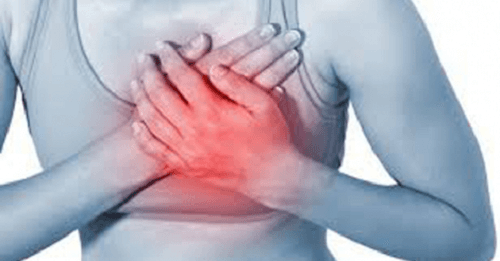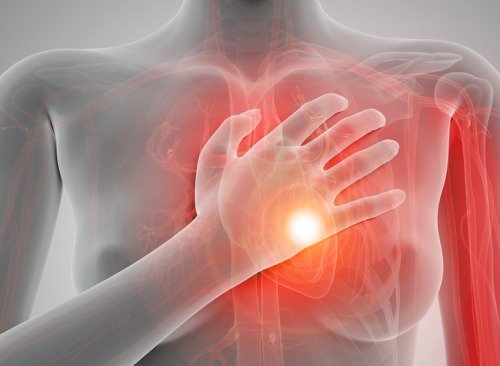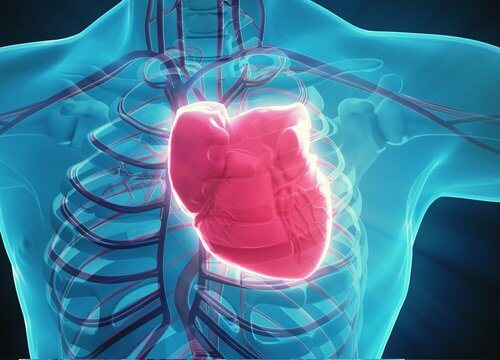How to Survive a Heart Attack When Alone

The mere thought that you could suffer a heart attack at any time is terrifying, because the aftermath can often be fatal. However, what happens if you suffer a heart attack when alone?
Knowing how to respond to the symptoms of a heart attack could be crucial to saving your life.
In many cases, it’s hard to act if you have a heart attack when alone. However, if you follow these recommendations, you might be more likely to survive the event and get medical attention in time.
Is a heart attack the same as cardiac arrest?
Before we launch into our recommendations for surviving a heart attack when alone, it’s important to clarify the difference between cardiac arrest and a heart attack.
People commonly make the mistake of believing that they’re the same, when in fact they are not.
Both cardiac arrest and myocardial infarction (the medical term for a heart attack) are caused by poor circulation and inadequate blood supply to the heart. However, they differ in their symptoms.

Cardiac Arrest
Cardiac arrest occurs when circulation in the body slows, which causes the heart’s contractions to become irregular or weakened.
As a result, the body no longer receives adequate supplies of oxygen where it is needed. Then, the person loses consciousness when this begins to affect the brain.
Read more: Learn the Symptoms of a Cardiac Arrest
Heart Attack
Meanwhile, a heart attack, or myocardial infarction, occurs when blood flow is reduced to a particular area of the heart. This is usually due to a blocked artery. As a result, the tissue in this part of the heart begins to die.If it goes untreated, this alteration blood and oxygen supply can cause serious damage to the heart muscle.
Common symptoms associated with heart attacks that can serve as an early warning sign include chest pain, shortness of breath, heart palpitations, excessive sweating, nausea, fatigue, and dizziness.
Now that you know the differences between cardiac arrest and a heart attack, we want to tell you how you should act to increase your chances of survival if you experience a heart attack when alone.
While there’s no fool-proof method to surviving a heart attack, what we’re going to share with you could still save your life.
What to Do if You’re Having a Heart Attack

1. Call for help
First and foremost, you have to call 911 if you’re feeling pain and discomfort in the region of your heart that raises suspicion.
If you’ve already been diagnosed with any kind of heart disease, contact your regular doctor’s office immediately. If you happen to be driving a car and begin to experience any of the symptoms, pull over. Call 911 as soon as possible.
No matter how close you are to an emergency room or health clinic, under no circumstances should you attempt to drive yourself there. You could lose consciousness while driving, causing an accident that could harm yourself and others.
2. Take any medications you have that could help
If you’re already on some kind of medication to control your heart disease, it’s possible that you have a beta-blocker on hand. Take one while you wait for help to arrive.
If this is your first heart attack, you should chew and swallow an aspirin as quickly as you can.
Aspirin helps prevent blood clots and improves blood flow by relaxing the walls of the arteries. This can help prevent the problem from getting worse while you wait.
Learn more about aspirin: The Incredible Power of Aspirin
3. Remain calm and help your heart
When at all possible, you need to remain still and calm to avoid putting pressure on the heart muscle.
If you can, punch yourself lightly in the chest over your heart to keep it from expending the effort to pump itself. However, this is a very hard thing to do by yourself, and is more effective if someone else does it for you.
First Aid for Cardiac Arrest
Now that you know what steps you should take to respond to a heart attack when alone, you might be wondering: why did we go to such effort to explain the difference between cardiac arrest and heart attacks?
The difference is the use of CPR.
CPR is very important in the case of cardiac arrest. However, it’s unnecessary in the case of the heart attack and should only be used if a cardiac arrest occurs.
That’s why we wanted to clarify the difference between the two conditions. Frequently, these types of articles don’t clarify the difference between the two conditions. Thus, a lot of people remain uncertain about what they should do to respond.
We hope this information will shed more light on the subject.
This text is provided for informational purposes only and does not replace consultation with a professional. If in doubt, consult your specialist.








